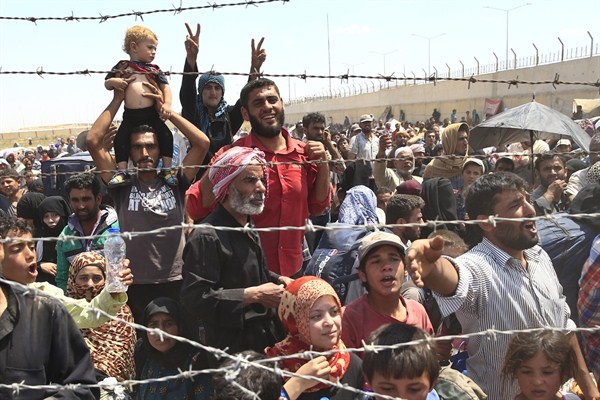Nearly 60 million people last year were displaced by war, conflict and persecution, the highest number ever on record, according to the United Nations High Commissioner for Refugees (UNHCR) annual report today. The largest source of refugees is Syria, with 3.9 million Syrian refugees in 107 countries. Syria overtook Afghanistan in the U.N.’s ranking; Afghanistan had previously held that position for more than 30 years.
As U.N. High Commissioner for Refugees Antonia Guterres said, “We are witnessing a paradigm change, an unchecked slide into an era in which the scale of global forced displacement as well as the response required is now clearly dwarfing anything seen before.” He specifically called on wealthier countries in Europe and the Persian Gulf to help, as he appealed for “all countries in the world to have their doors open.”
Clearly, UNHCR is facing a monumental task. But other countries should share the burden, rather than it falling to UNHCR primarily. As Amy Slaughter explained in a feature for World Politics Review in 2011, the U.N. refugee agency’s role and mandate have evolved since it was created in 1951:
Keep reading for free
Already a subscriber? Log in here .
Get instant access to the rest of this article by creating a free account below. You'll also get access to two articles of your choice each month and our free newsletter:
Subscribe for an All-Access subscription to World Politics Review
- Immediate and instant access to the full searchable library of tens of thousands of articles.
- Daily articles with original analysis, written by leading topic experts, delivered to you every weekday.
- The Daily Review email, with our take on the day’s most important news, the latest WPR analysis, what’s on our radar, and more.

